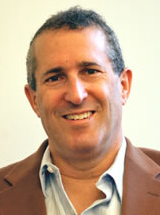SUBMITTED BY James Rosenzweig
When Barack Obama was elected to the U.S. presidency four years ago, he inherited a program in fundamental research in this country with an unprecedented tradition of success.
Since the second world war, Americans have led the world in innovation and exploration, winning an outsized share of Nobel Prizes in physics and other fields in basic science. However, despite a bipartisan acknowledgement of the central role of research and development and much heartwarming rhetoric, funding for physical science research in the U.S. has remained essentially flat (not accounting for inflation, thus implying a cut in spending power) for three decades.
This situation has implications for the future economic health of the country as a whole, as well as locally here at UCLA. Indeed, UCLA has enjoyed a strong growth in extramural research support with the impressive enhancement of the school’s reputation.
By the numbers: UCLA is perennially second or third in the nation in research support received, and UCLA physical sciences was rated ninth in the world in a survey published last month by The Times of London. The excellence we achieved in graduate programs is directly tied to our success in obtaining research support, which comes overwhelmingly from the federal government.
The Obama administration has had some success early on in addressing the steady decline in U.S. government support for scientific research. The appointment of Steven Chu, a Nobel laureate in physics, to head the U.S. Department of Energy, reversed a decades-long trend of nominating political appointees to manage the United States’ largest agency that funds physics research.
This has yielded improvements in the direction of American science. Further, the administration injected considerable sums of money in a one-time boost to science infrastructure in the form of the American Recovery and Reinvestment Act “stimulus package.” Nonetheless, with partisan gridlock in Washington, the baseline funding of science has continued a slow descent.
In recent years, there has been a reorganization of American science funding priorities in which new directions have been embraced, such as the fantastically successful X-ray free-electron laser (first conceived and developed at UCLA, now the mainstay of the Stanford Linear Accelerator Center).
Thus the U.S. has taken the initiative in some ways, and when one includes basic research funding managed by the Department of Defense, U.S. science has remained dynamic.
From my point of view, there is also a worrisome trend that bears monitoring: Times have been tolerable for established researchers, while it is a struggle for young investigators who are at the start of their careers to obtain research funding.
Many headlines highlighting scientific discoveries come from “big science,” such as the Large Hadron Collider that recently found fame in observing the Higgs boson, and the International Thermonuclear Experimental Reactor project, which intends to show the feasibility of a magnetically confined fusion reactor. These multibillion-dollar international projects are both located in Europe.
One may clearly note that erratic trajectory of U.S. support for such long-horizon undertakings works against our hosting projects of this class. In fact, we are currently facing another moment in which science budgets may crash because of the fiscal cliff, with the result of “sequestration.” The bottom line is that without congressional action, the Budget Control Act from one year ago dictates mandatory science budget cuts of about 8.5 percent, or double that number if the Department of Defense is exempted from the cuts.
The stakes for the future of U.S. science in this affair are incredibly high. Cuts of this magnitude would decimate U.S. standing in science both big and small, producing lasting harm. Not only would large projects flee our shores, but so would the human capital that forms the core of science.
Students and post-doctoral researchers that today throw their lot in with UCLA, for example, will simply choose to go elsewhere to find a more welcoming and stable environment. Members of the scientific community as well as concerned citizens will need to make their voices heard to avoid such needless damage to fields that play an integral part in our economic and intellectual futures.
Rosenzweig is a professor of physics and chairman of the department of physics and astronomy.
